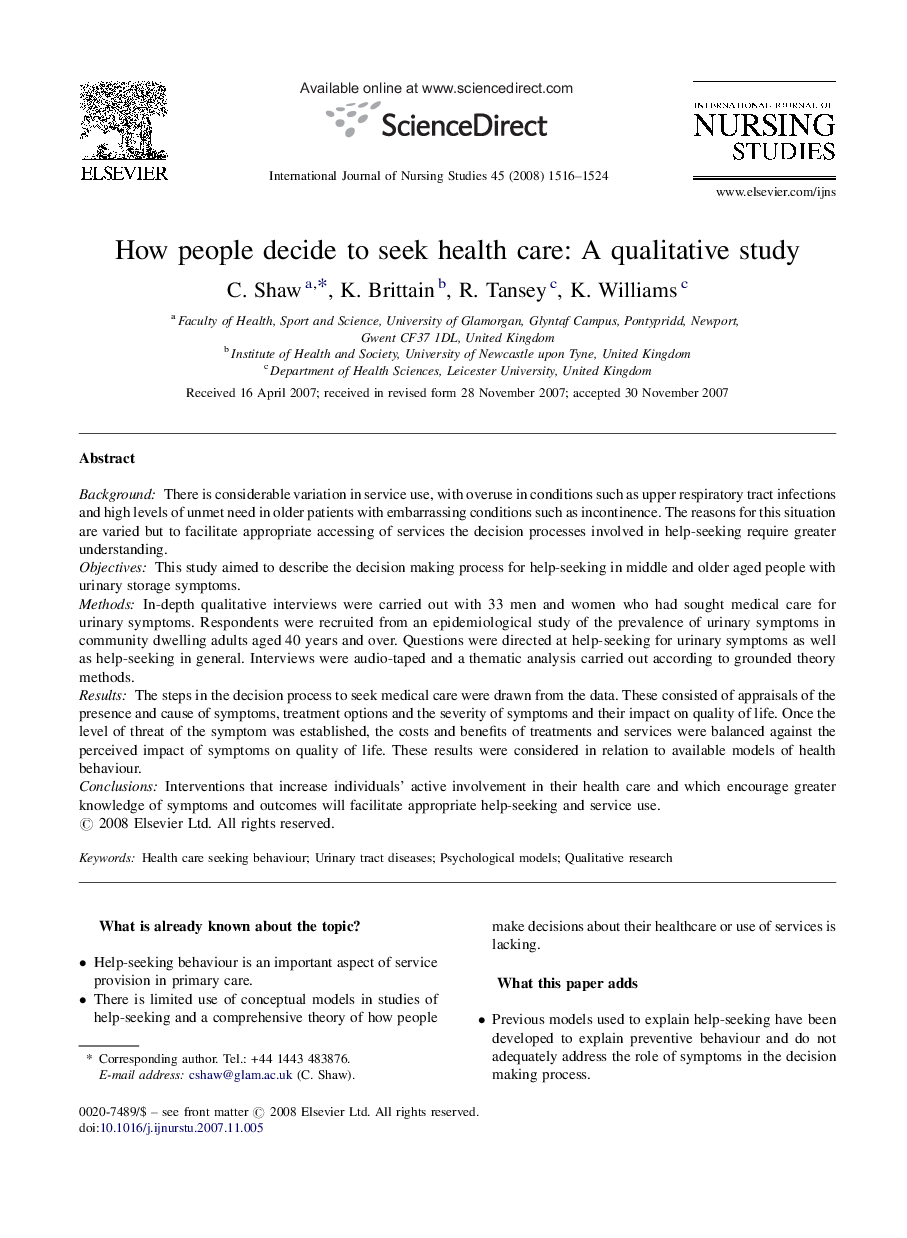| Article ID | Journal | Published Year | Pages | File Type |
|---|---|---|---|---|
| 1077776 | International Journal of Nursing Studies | 2008 | 9 Pages |
BackgroundThere is considerable variation in service use, with overuse in conditions such as upper respiratory tract infections and high levels of unmet need in older patients with embarrassing conditions such as incontinence. The reasons for this situation are varied but to facilitate appropriate accessing of services the decision processes involved in help-seeking require greater understanding.ObjectivesThis study aimed to describe the decision making process for help-seeking in middle and older aged people with urinary storage symptoms.MethodsIn-depth qualitative interviews were carried out with 33 men and women who had sought medical care for urinary symptoms. Respondents were recruited from an epidemiological study of the prevalence of urinary symptoms in community dwelling adults aged 40 years and over. Questions were directed at help-seeking for urinary symptoms as well as help-seeking in general. Interviews were audio-taped and a thematic analysis carried out according to grounded theory methods.ResultsThe steps in the decision process to seek medical care were drawn from the data. These consisted of appraisals of the presence and cause of symptoms, treatment options and the severity of symptoms and their impact on quality of life. Once the level of threat of the symptom was established, the costs and benefits of treatments and services were balanced against the perceived impact of symptoms on quality of life. These results were considered in relation to available models of health behaviour.ConclusionsInterventions that increase individuals’ active involvement in their health care and which encourage greater knowledge of symptoms and outcomes will facilitate appropriate help-seeking and service use.
